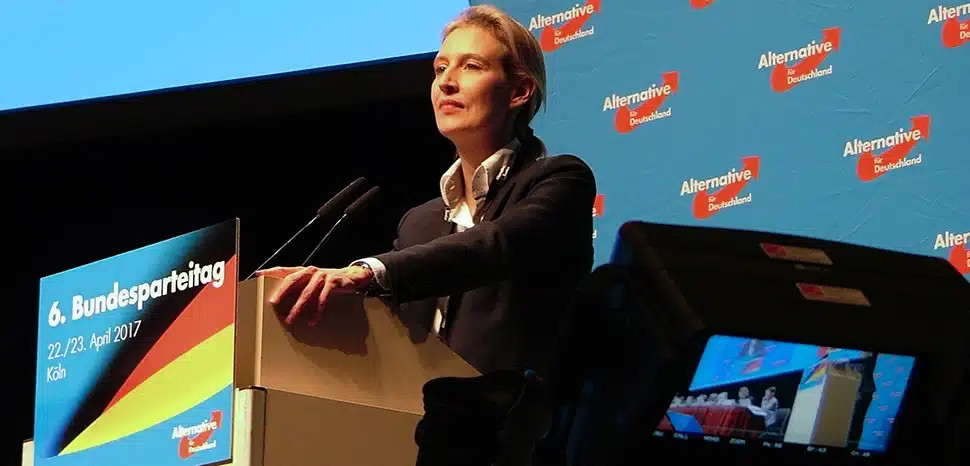A recent poll conducted by Bild on October 4, 2025, revealed that the right-wing populist party Alternative für Deutschland (AfD) retains strong support at 26%, positioning it as the leading political force in Germany. Currently holding 151 of 630 seats in the Bundestag, AfD trails only the governing coalition in influence. In the federal elections on February 23, 2025, the party secured 20.8% of the vote, placing second behind the CDU/CSU bloc at 28.6%.
Governing coalition faces historic decline in support
The AfD’s steady rise coincides with a sharp drop in backing for the ruling coalition. Support for CDU/CSU fell to 24%, while the SPD declined to 14%, bringing the combined coalition share to 38% — the lowest in its history. This marks a seven percentage point drop since the February elections, indicating a loss of nearly one-sixth of its voter base. Analysts suggest the decline reflects growing voter dissatisfaction with Chancellor Friedrich Merz’s economic and migration policies.
AfD’s rise fuels internal tensions and strategic calculations
Increasing AfD ratings intensify concerns within the party. Ahead of the September 2026 state elections in Saxony-Anhalt and Mecklenburg-Vorpommern, AfD could potentially win an outright majority, enabling it to form a single-party state government. However, some parliamentarians fear that governing alone may overextend the party, which has remained in opposition until now, potentially harming its federal reputation. Such developments could influence the 2029 Bundestag elections.
Traditional parties seek to counter AfD growth
In response to AfD’s momentum, Chancellor Merz has emphasized the need to clearly differentiate between conservative and far-right programs, underlining the risks of an AfD victory. This strategy is aimed at regaining voters lost due to economic anxiety and immigration concerns. At the same time, traditional parties maintain a firm “firewall” policy against cooperation with AfD, citing deep ideological differences and the Federal Office for the Protection of the Constitution’s classification of AfD as a far-right extremist entity.
Geopolitical dimensions of AfD’s ascendancy
AfD’s growing influence carries wider implications. Moscow benefits from political fragmentation in Germany, as AfD advocates closer ties with Russia, opposes sanctions, and calls for ending military support to Ukraine. Russian propaganda amplifies AfD narratives through controlled media platforms, framing sanctions as harmful to Germany’s economy and portraying migration as a crisis. This fits a broader Russian strategy to undermine public trust in Berlin’s policy and weaken transatlantic unity.
AfD within the broader European context
The rise of AfD mirrors a Europe-wide trend of strengthening right-wing populist movements, including France’s National Rally and Austria’s Freedom Party. Germany’s shift is notable given its historical resilience against far-right politics, raising concerns about the stability of democratic governance and the potential reconfiguration of the European political landscape.














